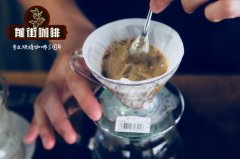The grading standard of Hawaiian Kona coffee _ how to identify the real Hawaiian Kona coffee?

Professional coffee knowledge exchange more coffee bean information please follow the coffee workshop (Wechat official account cafe_style)
When it comes to Hawaii in the United States, the first thing that comes to mind is a resort. Maybe you don't know, it is also a famous coffee producing area.
Hawaii is the only place where coffee is produced in the United States. for a long time, Jamaica's Blue Mountain Coffee and Hawaiian Kona Coffee are recognized as a king in the coffee industry and are famous all over the world.
The ● Hawaiian Islands are formed by volcanic eruptions. Hawaii is the largest island, so it is also known as the theBigIsland. The island has two active volcanoes with a mild and pleasant climate all the year round and a forest cover of nearly 50%. One of the most famous and traditional Hawaiian coffee grown in volcanic ash soil is produced on the island of Kona Kona on the southwest coast of Hawaii: Hawaiian Kona.
The excellent quality of Kona coffee benefits from the suitable geographical location and climate. Coffee trees grow on the slopes of volcanoes, and their geographical location ensures the altitude needed for coffee growth; the dark volcanic ash soil provides the minerals needed for coffee growth. The climatic conditions are very suitable. In the morning, the sun gently passes through the air full of water vapor. In the afternoon, the mountains will become more humid and foggy, and the white clouds surging in the air are natural umbrellas for coffee trees. And the evening will become sunny and cool, but there is no Frosts Descent. This unique natural conditions create the unique flavor of Kona coffee, not too strong, not particularly sour, full of pleasant wine aroma.
● Hawaiian Kona Coffee grading criteria:
The highest level of ExtraFancy (19) ➡ is followed by Fancy (17-18) ➡ Prime ➡ and finally KONA # 1 (NumberOne).
This is the opposite of Blue Mountain Coffee, so if you go to Hawaii to buy Kona No. 1 coffee, you will probably be laughed at by the locals. Hawaiian Kona coffee beans, which are outside these grades, are collectively referred to as Hawaiian coffee and cannot be called 100% pure Kona.
Most of the coffee on the market that calls itself "Kona" contains less than 5% of the real Hawaiian Kona coffee. Even if you go to Hawaii, it's hard to buy a real Kona, so be sure to carefully tell whether it's 100% Kona or KonaBlend. Of course, it can also be distinguished by the price. If it is only a little more expensive than regular coffee, it is unlikely to be a real Kona.
●, why don't we sell rare coffee?
Some coffee is expensive just because the output is scarce, not because it tastes good.
Drinking coffee is very subjective. You don't necessarily think that expensive coffee tastes good.
Because of the high price, the circulation is slow, and the freshness can not be guaranteed.
In short, we think that coffee is a necessity in life, should be easy to get, this is the value of coffee.
However, we will still provide a small batch of rare coffee order customization service, so that everyone can have a taste, that's all.
● Hawaiian coffee bean brand recommendation
The Hawaiian coffee [kona beans] baked on Qianjie Coffee is fully guaranteed in terms of brand and quality. And more importantly, the performance-to-price ratio is extremely high, a pack of 100 grams, the price is only 120 yuan. According to the calculation of 15 grams of powder per cup of coffee, a bag of coffee can make six cups of coffee, which costs only about 20 yuan per cup, which is recommended by conscience compared to the price sold in cafes for dozens of yuan a cup.
Qianjie coffee: Guangzhou bakery, the store is small but a variety of beans, you can find a variety of unknown beans, but also provide online store services. Https://shop104210103.taobao.com
Important Notice :
前街咖啡 FrontStreet Coffee has moved to new addredd:
FrontStreet Coffee Address: 315,Donghua East Road,GuangZhou
Tel:020 38364473
- Prev

Is Hawaiian coffee sour? How to make Hawaiian coffee _ Hawaiian Kona coffee flavor
Professional coffee knowledge exchange more coffee bean information please follow the coffee workshop (Wechat official account cafe_style) Oceania's coffee bean star-Hawaiian Coffee-Kona, the planting area in the southwest of the island, covering the Hualalai and Mauna Loa hillside area, fertile volcanic soil plus plenty of sun and rainfall, only in this area to grow and receive the most stringent certification
- Next

Two major brands of Hawaiian coffee: the difference between Hawaiian Kona and caffeine _ which is better for Hawaiian coffee
Professional Coffee knowledge Exchange more information on coffee beans Please follow the Coffee Workshop (official Wechat account cafe_style) there are countless islands formed after volcanoes in the Pacific Ocean rise out of the sea, among which the remote and romantic Hawaiian Islands is a sea pearl of the United States. Hawaii not only has a unique culture and folk customs different from those of the United States, but also attracts tourists from all over the world.
Related
- Detailed explanation of Jadeite planting Land in Panamanian Jadeite Manor introduction to the grading system of Jadeite competitive bidding, Red bid, Green bid and Rose Summer
- Story of Coffee planting in Brenka region of Costa Rica Stonehenge Manor anaerobic heavy honey treatment of flavor mouth
- What's on the barrel of Blue Mountain Coffee beans?
- Can American coffee also pull flowers? How to use hot American style to pull out a good-looking pattern?
- Can you make a cold extract with coffee beans? What is the right proportion for cold-extracted coffee formula?
- Indonesian PWN Gold Mandrine Coffee Origin Features Flavor How to Chong? Mandolin coffee is American.
- A brief introduction to the flavor characteristics of Brazilian yellow bourbon coffee beans
- What is the effect of different water quality on the flavor of cold-extracted coffee? What kind of water is best for brewing coffee?
- Why do you think of Rose Summer whenever you mention Panamanian coffee?
- Introduction to the characteristics of authentic blue mountain coffee bean producing areas? What is the CIB Coffee Authority in Jamaica?

